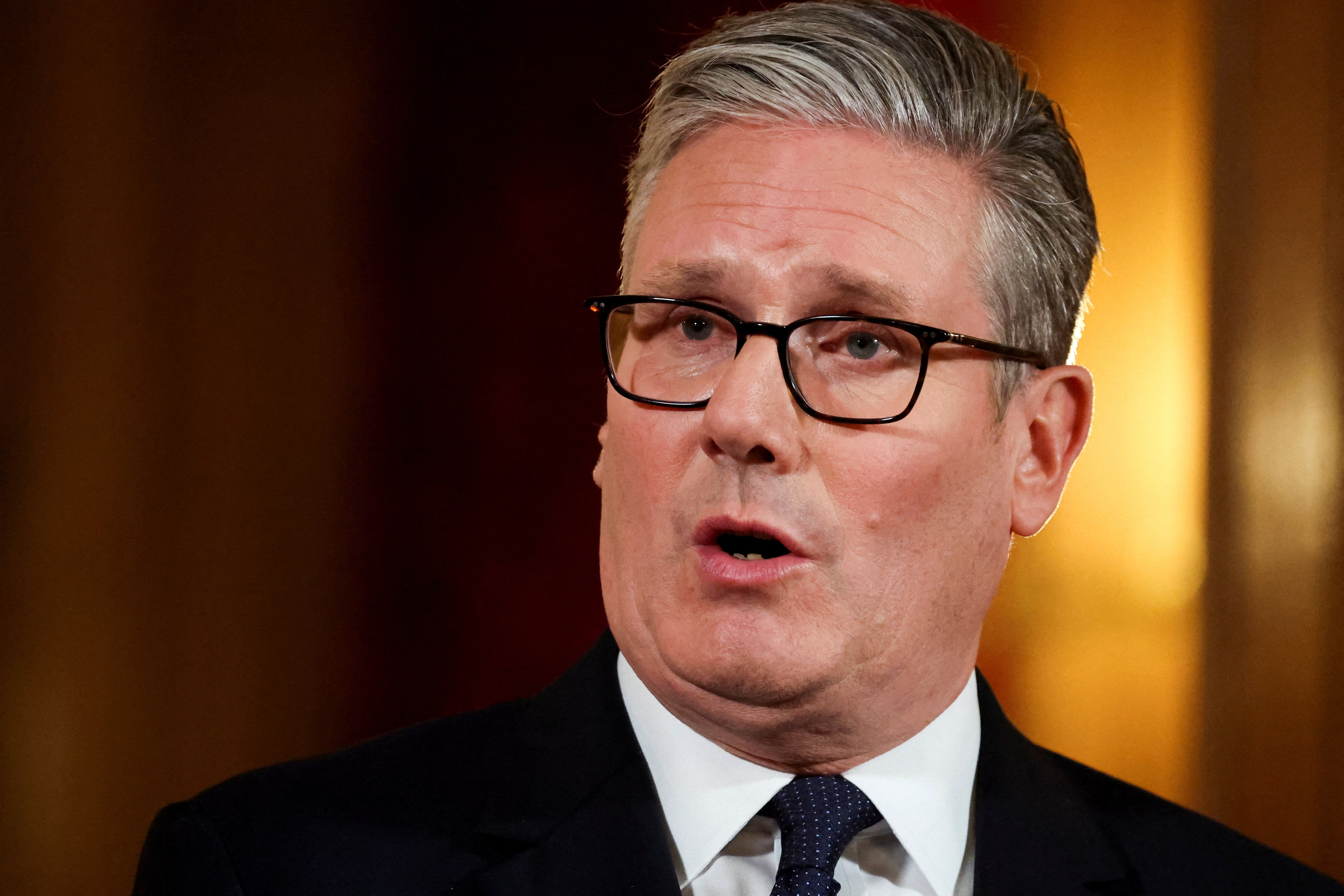Sir Keir Starmer’s historic decision to recognise Palestinian statehood later this year will not be enough to stop some of his top cabinet ministers from facing major battles to hang on to their seats, leading pollsters have warned.
Health secretary Wes Streeting and justice secretary Shabana Mahmood are among those who could be ousted from parliament at the next general election, the UK’s top pollster Sir John Curtice warned, in the face of major challenges from pro-Gaza candidates.
Sir Keir lost a key member of his top team, Jonathan Ashworth, to a pro-Palestine independent candidate at the last election.
Mr Streeting was among those who held his seat, but saw his majority in his Ilford constituency slashed from 5,198 in 2019 to just 528.
Now, pollsters warn that anger over the issue of Palestine, on which Jeremy Corbyn’s newly announced political party will attempt to capitalise, could see the end of Mr Streeting and other high-profile casualties from the cabinet.

Labour pledged to recognise a Palestinian state in its manifesto before the last general election, and Sir Keir this week bowed to growing pressure from his own MPs – and some high-profile members of the cabinet – to lay out a plan to recognise the state of Palestine.
Asked if the move on Palestinian statehood could help save Mr Streeting and Ms Mahmood next time around, Sir John told The Independent that it “may not be sufficient, given the current condition of the Labour Party”. Luke Tryl, from pollsters More in Common, was more blunt. “No,” he said.
Sir John added that it was clear that Starmer had also “lost out” on votes in his own constituency last year because of the issue, although the PM’s majority is significantly larger than some of his cabinet colleagues.

After promising to tackle Labour’s antisemitism crisis when he came to power, Sir John summed up the PM’s problem: “Here is somebody who spent a great deal of time and effort trying to reconnect with the Jewish community, and now he’s finding himself having to spend a great deal of effort trying to reconnect with the Muslim community. It is very difficult to keep himself on board with both groups at the moment.”
Mr Tryl said the war in Gaza had uncovered “deeper” problems for Labour.
“When we have done focus groups with voters in Muslim areas, particularly some of those who backed or were thinking about backing pro-Gaza independent candidates, I compared it to speaking to voters in the red wall after Brexit,” he said.
“In the sense that Brexit was the thing which caused the split, but it actually brought to the fore much deeper resentments – that they have been taken for granted, ignored, left behind by Labour … I think we’re going to see exactly the same thing with Muslim voters.”
Mr Corbyn confirmed his party would campaign heavily on Palestine when he launched it last week.
Sir John said that the polling suggested that the new party would take the most votes from the Greens, followed by Labour. But he added, when it came to a new party run by their ex-leader: “Given that Labour, even without Corbyn being put onto the hypothetical ballot, are behind Reform, they don’t really want this.”
Sir John said the Palestine announcement could be seen, in one way, as an example of Labour’s problem connecting with the wider electorate.
Asked what the party could do to win back voters across the board, he said: “Explain to people what you are about. It’s the point that everybody’s making now. This is a government that has no known direction. And of course, some people are painting [the Palestine move] as yet another example of policy change.
“In terms of substance, [Labour should] turn around the economy and make sure that the health service doesn’t have long waiting lists. It’s not complicated, just very, very difficult to do.”
No 10 has been approached for comment.



